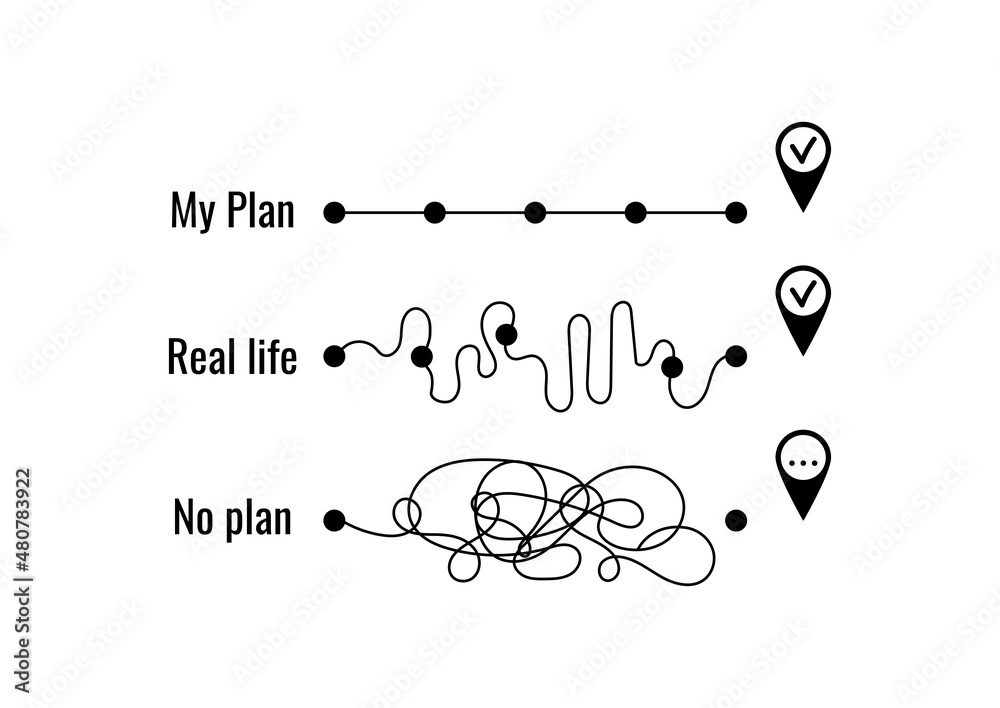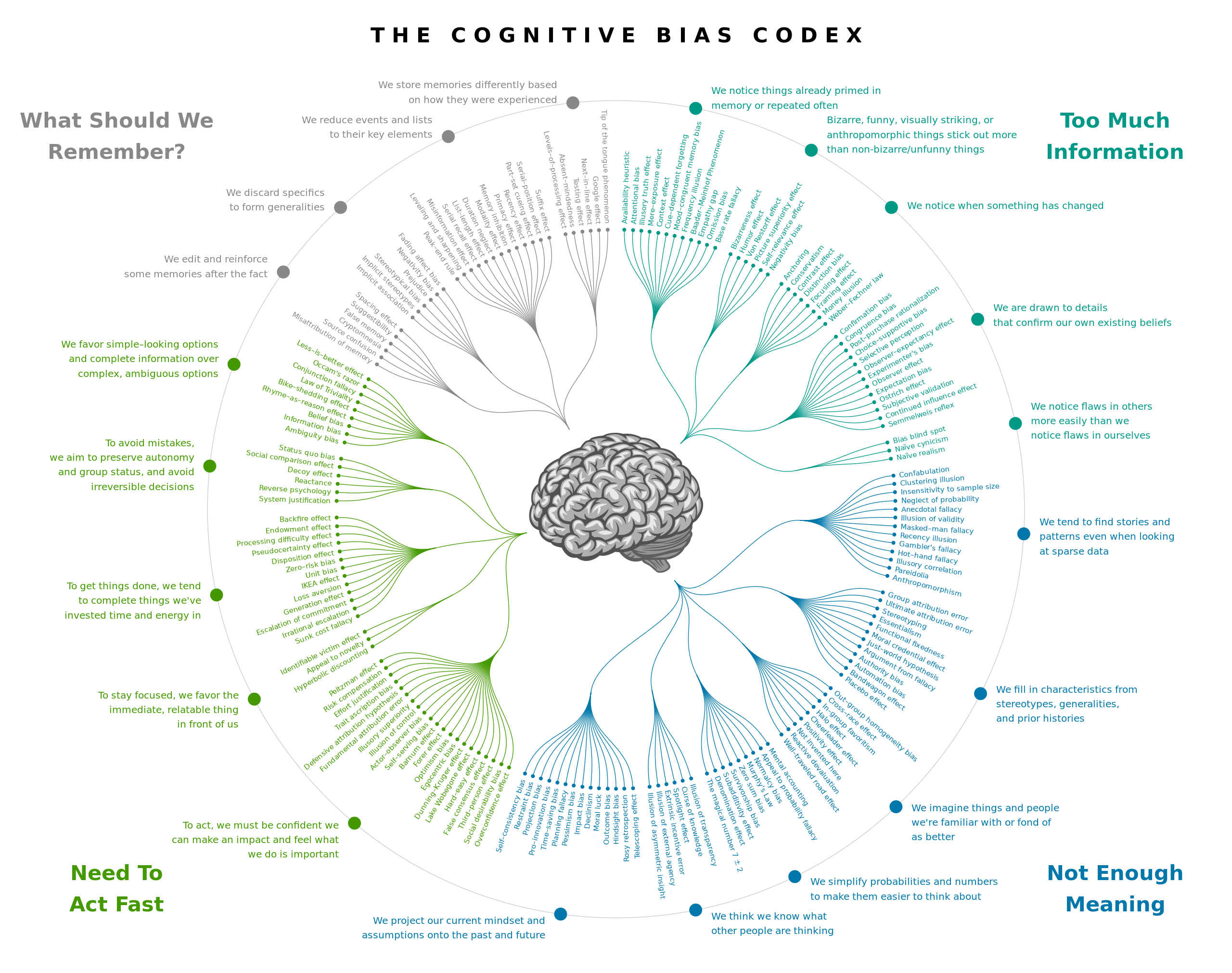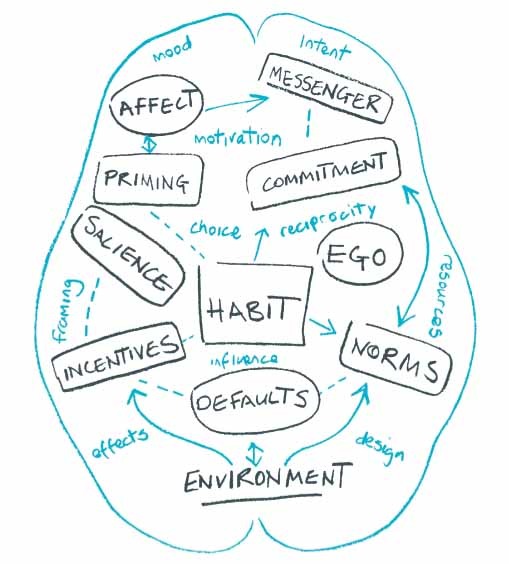Behavioural models to help you create something worthwhile rather than surrendering to chaos
Are you a planner or a procrastinator? Do you have the next year or few mapped out, or do you strap yourself in to uncertainty and hope? You are likely suffering a dose of optimism bias, a cognitive bias that causes humans to believe that the future will be bright, then chaos hits and we go into meltdown. It is amazing to achieve any level of progress when uncertainty ever reigns.
“Uncertainty is the only certainty there is, and knowing how to live with insecurity is the only security.” – John Allen Paulos
This is my 30th year working in research, and with this many studies and long term client relationships exploring human behaviour and what drives change. I have recently been reflecting on lessons learnt and how to make individual progress.
We also recently went through a program at the renowned University of South Australia’s Centre of Growth. Much of this was about setting a business strategic vision for five years into the future to achieve significant growth, and the steps, clarity and actions to towards this. It was a valuable process and working with our program mentor Richard Turner was valuable in providing clarity building on our successful first 19 years of Square Holes.
What do the next five years look like? It got me thinking about my own path and what the next year to five might look like, particularly in a milestone year.
August 28, Jack Black and Jason Priestly turn 55. One day before me. This week back in 2004 Facebook launched, and nine months later Square Holes was born. ’20’ and ’55’ are both BIG numbers worth celebrating.
Both indicators of survival with underlying achievements, measurable or otherwise.
Survival is success, with half of Australian businesses surviving more than three years, according to Australian Bureau of Statics figures, and only 11% of Australian businesses employing more than four staff (61% employ no staff). So by that measure we should celebrate small business survival.
Surviving to enjoy a long and fulfilled life is another measure of success. My 74 year old mum remains healthy and active and is preparing for another long overseas trip. My otherwise healthy father died at 61, which is a number not that much bigger than 55. It can seem impossible to plan for the uncertainty of life.
Back towards the start of any journey, in life or business it can feel at times like you’re on a road to nowhere, doing your best to make progress, surviving more so than thriving, and one step at a time moving forward, then two back, then three forward.
The year Square Holes launched, 2004, Jason Priestly’s claim to fame was (and still is) Beverly Hills 90210 which ended four years prior, after 10 seasons and 293 episodes. Jack Black’s career was 20 years strong, then School of Rock in 2003 catapulted him into icon longevity status. The chaos of life is unpredictable.
And, who would have ever imagined the positive and negative impact Facebook would have in our similar business lifespan. There are likely many positive impacts on the world of Facebook and other social media, yet damage ever continues. (Facebook just turned 20, but don’t expect a party | NBC News)
I share(d) my birthday with Michael Jackson, who died age 50, with a huge legacy of good and bad. The ‘King of Pop’ remains the third biggest selling artist of all time (behind The Beatles and Elvis), yet likely his biggest legacy is one of child abuse allegations, financial problems and drug addiction.
Steve Jobs one of the two founders of Apple once said …
“You can’t connect the dots looking forward; you can only connect them looking backwards. So you have to trust that the dots will somehow connect in your future. You have to trust in something – your gut, destiny, life, karma, whatever. This approach has never let me down, and it has made all the difference in my life.”
Back in 2016 Square Holes conducted a study for the Government for a large ‘Ageing Well’ initiative to define future planning and priorities for older Australians (aged 60+). A consistent theme from the ‘older’ people was regret at living in fear and fighting the uncertainty of life. The generously shared wisdom from older Australians included …
Staying healthy when you are young(er) will provide the best chance of being healthy when older. Being financially aware young(er) will give the best chance of financial security when older. Being a good person, parent and friend when young(er) will nurture close friends and family later. Starting a business young(er) will give more time to learn, make mistakes and grow as a leader. Overcoming procrastination and accepting uncertainty and chaos when younger will build a fulfilling life. The best thing that can be done is to do things, big and small, that will ultimately seed a better future.
Behavioural models Square Holes applies for our government and commercial clients are similarly valuable in understanding how to get the best out of life individually. Here’s a summary of three …
Respect the cognitive bias in all of us
For example …
Overconfidence bias: We must be confident and feel what we do is important to have an impact
IKEA effect: We tend to complete things we’ve invested time and energy in
Moral luck: We project our current mindset and assumptions onto the past and future
MINDSPACE is critical to shifting behaviour
The MINDSPACE behaviour change framework was developed by the London School of Economics.
M is for Messenger: We are heavily influenced by who communicates information to us
I is for Incentives: Incentives are shaped by predictable mental shortcuts such as avoiding losses
N is or Norms: We are strongly influenced by what others do
D is for Defaults: We ‘go with the flow’ of pre-set options
S is for Salience: Our attention is drawn to what is novel and seems relevant to us
P is priming: Our acts are often influenced by sub-conscious cues
A is Affect: Our emotional associations can powerfully shape our actions
C is for Commitments: We seek to be consistent with our public promises and reciprocate acts
E is for Ego: We act in ways that makes us feel better about ourselves
Procrastination, giving up and behavioural psychology
Five steps are assumed (rational or otherwise) to drive behaviour change …
Precontemplation: Not even thinking about change
Contemplation: Start thinking “perhaps I should change?”
Preparation: Balancing of the pros and cons and risk-reward analysis to trigger change
Action: Likely very slow after much procrastination
Maintenance: Fighting against comfortable old ways and likely giving up.
What implications does this have for your year or years moving forward?
For example …
- Respecting that human nature is to be oblivious to change, then procrastinate then relapse
- Remain positive and make commitments to family, friends and team, will increase sticking to it
- Setting defaults, lists and daily rituals can start positive habits, especially if norms of others
- Ego is a super reward for acting, so gamification in Apps for fitness to finance drive change
- Set up incentives that motivate avoiding loss (money or otherwise) more so than gain
Progress comes from small steps towards a vision or goal, and the ability to push through the certainty of uncertainty to keep moving in the same direction, not surrendering to chaos. It is about putting in the work in the immediate to short term to see return on investment in the longer term.
- Accept the certainty of uncertainty and learn how to live with and feel secure in insecurity
- Write a clear vision for you your life / business in five years?
- Break down the next year, next year, year three and year four
- Commit to micro-actions daily, weekly, this year and start making steps towards the vision
- Create rewards for yourself, and set easy defaults that become positive habits
Progress is made one step at a time, slowly towards a goal – BIG or small.
Good luck.






